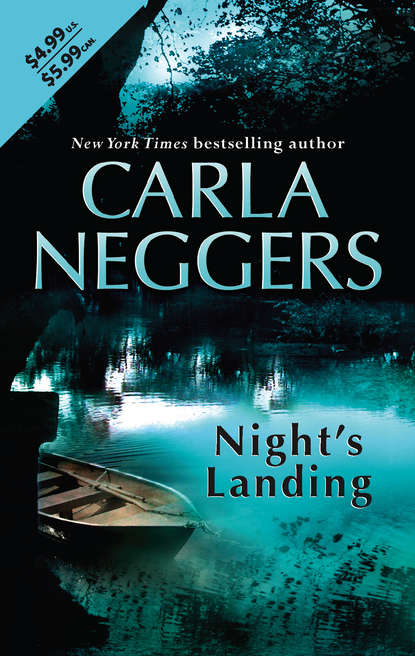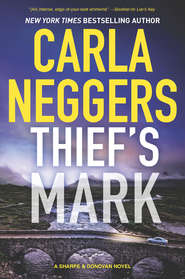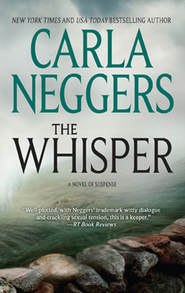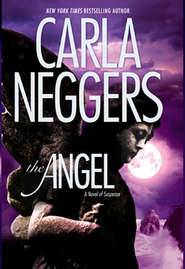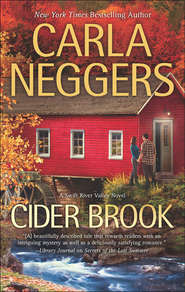По всем вопросам обращайтесь на: info@litportal.ru
(©) 2003-2024.
✖
Night's Landing
Автор
Год написания книги
2018
Настройки чтения
Размер шрифта
Высота строк
Поля
“Not if he was shot, too, ma’am. Doctors and FBI will have him sewn up. Now, go on. One step at a time, okay?”
Sarah nodded. “Thank you. Rob and I are twins. Did you know that?”
“I think your mother told me that, yes, ma’am.”
“She almost died when she had us.”
Supposedly. It could have been another in a long string of Dunnemore enhancements. Although not a blood Dunnemore, Betsy Quinlan had fallen right in line with that particular Dunnemore tradition. Even letters and diaries from the nineteenth century that Sarah had uncovered in her Poe research had mentioned the Dunnemores and their zest for drama and adventure. They’d made so many bad, romantic, impractical decisions that had led to disaster—which was exactly how their father had viewed Rob’s decision to become a marshal. A bad decision that would lead to disaster.
But Sarah didn’t know why she’d mentioned that their mother had almost died in childbirth—why she’d even thought of it.
Ethan didn’t comment and walked back down the porch steps with the same deliberateness as he’d mounted them. He paused, glancing up at Sarah as if to make sure she hadn’t fallen apart in the few seconds he’d had his back turned. She couldn’t smile. She couldn’t do anything to reassure him.
“A splash of cold water, Miss Sarah,” he repeated. “It’ll help. I’ll be back in a few minutes.”
She managed to pull open the screen door and step into the front room with its walls of squared logs and thick, white caulking, with its old furnishings and frayed knitted afghans, its threadbare rugs, its wall of framed photographs. Her gaze landed on an oval portrait of Granny Dunnemore at eighty, in her pink sweater and cameo pin, a woman who’d endured so much sorrow and tragedy, who’d nonetheless stayed strong and kept her spirit, her faith.
Sarah ran back to the kitchen and turned on the faucet in the old sink.
“I’ve been shot. I’ll be okay.”
Crying, she splashed her face with cold water and prayed those wouldn’t be her brother’s last words to her.
An hour after Sarah’s brother took a bullet in Central Park, two deputy marshals arrived at the Dunnemore house in a black government car. They came all the way around to the front porch, which afforded Ethan Brooker the opportunity to wish her luck, ask her to give her brother his best and slip out the back door.
He didn’t need to be introducing himself to a couple of feds.
As pretty as she was, Sarah looked like hell. Pale, frightened, splotchy-faced from shock and tears. The other fed shot with her brother—Nate Winter—hadn’t called her back. Understandable. The cable news channels reported that both he and Rob Dunnemore were in surgery. Winter was stable. Rob Dunnemore was critical and unstable.
If the reporters got it right. There was a lot of confusion, and the feds weren’t releasing much information.
Ethan had talked Sarah into shutting off the television. CNN, MSNBC and FOX were all carrying the story live, with helicopter shots of Central Park and the manhunt for the sniper. They’d brought in experts to talk about what kind of person would do such a thing and explain what the U.S. Marshals Service was.
They repeated footage from the news conference that had preceded the shooting and showed Nate Winter and Rob Dunnemore standing behind the mayor, the U.S. marshal from their district, the chief deputy marshal, the assistant director in charge of the FBI, the NYPD commissioner—an impressive gathering of state, federal and local law enforcement types.
Winter was tall, rangy and all business.
Dunnemore looked like a frat boy.
Every time she saw the footage of her brother, Sarah went a little paler.
A joint FBI, NYPD and U.S. Marshal’s Service news conference was scheduled for later that night and would, Ethan suspected, tell people nothing. The feds would be playing it close to the vest when two of their own had just been picked off in Central Park in broad daylight.
The all-news networks promised to carry, live, any briefings from the hospital where the two deputies were being treated.
As he made his way down to his cottage, Ethan stayed out of sight of the porch and any windows that could offer the feds a view of him. The breeze had strengthened into a stiff wind, damp and earthy smelling.
He entered through the back door, not making a sound. The cottage was made of the same rough logs as the main house and had an old-lady feel to it. Hand-crocheted afghans in bright, wear-ever yarns, doilies on the end tables, pink tile in the bathroom. When she’d shown him the place, Betsy Dunnemore had explained that her mother-in-law had built the cottage for herself after insisting her son live in the main house when he returned to Night’s Landing with his dying first wife. Even after her daughter-in-law died, Granny Dunnemore, as she was known by everyone, had stayed on in the cottage until her own death fifteen years ago.
The place had a small kitchen, two tiny bedrooms and a front room and small porch that looked out at the river.
It could have been a tent for all Ethan cared.
A fishing boat with two old men talking loudly at each other puttered upstream, and Ethan had to fight an urge to find a boat and get the hell away from Night’s Landing.
Charlene would want him to. Get on with your life. You can’t change what happened.
She wouldn’t be fooled into believing it was justice he was after.
It was revenge. Absolution for his own guilt.
He pulled himself away from the front window. Charlene would have loved it here. She’d never been a grasper—she’d talk about quitting the military and getting a little place in the country, having a couple of kids. He was the one who wasn’t ready to stand down. A couple more years, Char. A couple more.
She hadn’t had years the last time she’d brought up the subject.
She hadn’t had months.
Only days.
And he wasn’t with her when she died.
When she was murdered.
Ethan grabbed the pair of clippers he’d tossed onto the kitchen counter earlier and headed back outside. He didn’t know as much about gardening as he’d claimed to Stuart and Betsy Dunnemore, but they’d never bothered to test his knowledge of flowers, trees and shrubs or even check his phony references. He’d made sure he so looked the part of a disarming, hardworking good ol’ boy that they’d let it go.
He was from West Texas, but the rest was pure fiction.
Concealed behind a cedar tree, he watched the two marshals leave via the back door, one of them carrying a small suitcase, presumably Sarah’s. But instead of following them, she came out onto the porch and trotted down the steps and across the yard to the cottage. “Ethan?” Her voice sounded tight but more composed. “Ethan, I’m going to New York to see Rob. Where—”
He ducked out from his hiding place. “That’s good, ma’am.”
She almost smiled. “You were right about the marshals looking after me. I don’t know how long I’ll be gone. A few days, at least, I would think.”
“You just go on and don’t worry about a thing here.”
She seemed relieved, as if she’d expected him to evaporate on her. “I left my cell phone number on the refrigerator in case you need to reach me. You were right about the marshals getting in touch with my parents, too. They just called. They’re waiting to get more information after Rob gets out of surgery before they decide what to do.”
How much information did they need? Their son had been shot. He was in surgery. As far as Ethan was concerned, they should get their butts on a plane.
But Stuart Dunnemore did important work. He was in Amsterdam negotiating world peace or some damn thing. And he was old. A lot older than his wife—eighty or close to it. It couldn’t be easy at that age to drop everything and fly across the Atlantic, even in an emergency.
Ethan put aside his disapproval. He didn’t know what, if any, role the Dunnemores had played in his wife’s death, only that Char had met them in Amsterdam two days before she was killed. He wasn’t even sure if the Dutch authorities knew. Or if it mattered. The Dunnemores had returned to the States the day after they met with Charlene, the day before she was killed. That was eight months ago. Ethan had arrived at Night’s Landing in early April to check them out. They’d ended up hiring him.
He hadn’t bothered using an alias. The Dunnemores showed no sign that Brooker was a name they ought to know. Maybe Charlene had used an alias with them? Maybe they didn’t remember her name? They’d returned to Amsterdam in February and rented an apartment on a canal. Hiring Ethan on a quick trip home in April was supposed to give them peace of mind while they were away—it wasn’t easy for them to get back to Night’s Landing to check on their place. Maybe they didn’t know about Charlene’s death.
Since coming to Tennessee, Ethan had learned that the president of the United States was a family friend who’d grown up next door. He had no idea if that had anything to do with Charlene’s death or what he’d do if the Secret Service decided to check out the Dunnemore’s new gardener.
He’d also searched every inch of the Dunnemore house.





